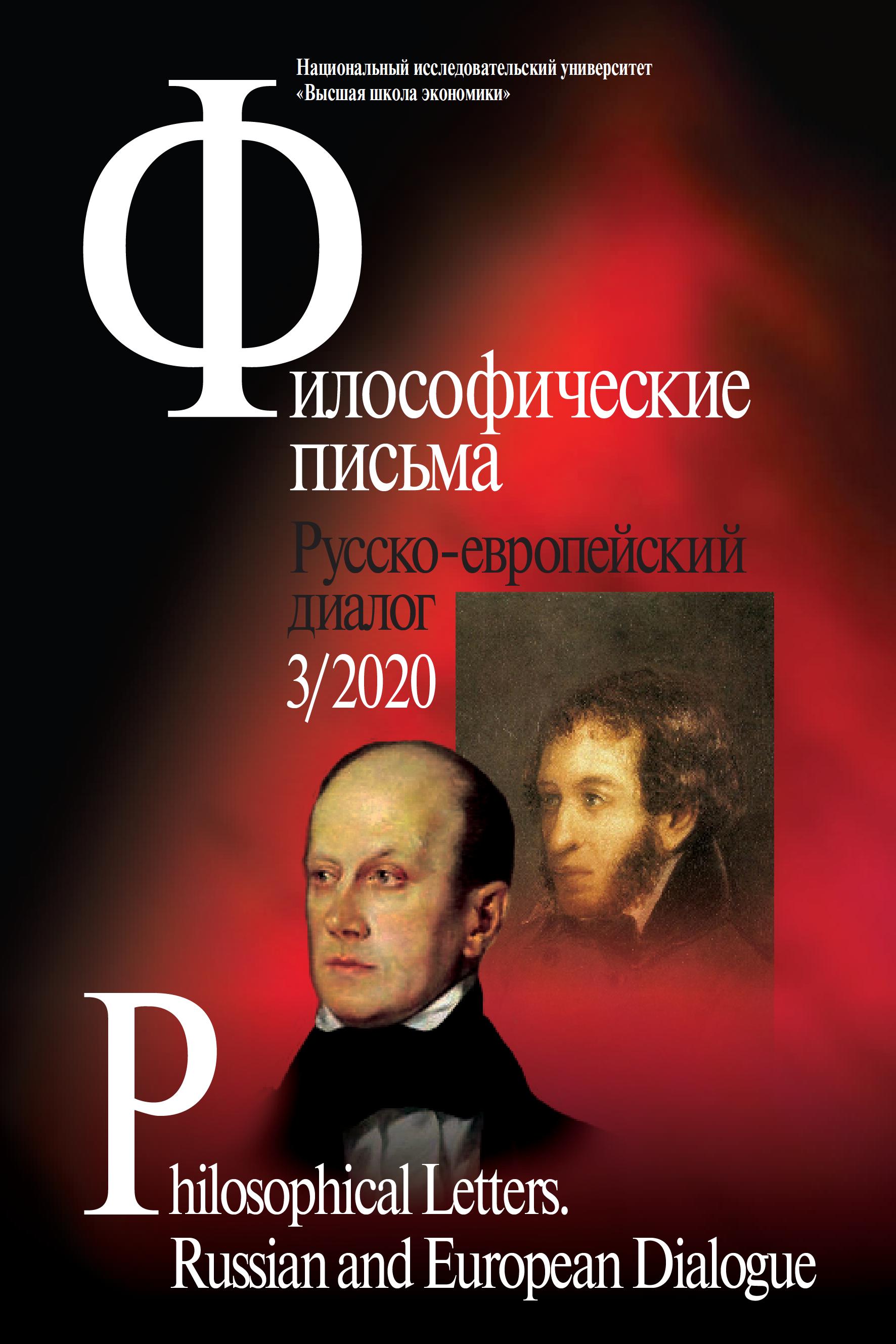Imitation of Chaadaev: Fifth Letter
Abstract
Two typologically close versions of existentialism are compared — the philosophy of M. M. Bakhtin and views of J.-P. Sartre. They are related by the initial phenomenological setting and the pathos of the desubstantialization of being replaced by eventfulness. At the center of both secular studies — a free act of individual who is responsible for his place in the world, both of studies rely on usual prosaic existential experience of human. However, Sartre's and Bakhtin's versions of philosophical anthropology differ significantly. Sartre's “unhappy consciousness” of human in fact reproduces the features of an inner world of hero of Dostoevsky's story “Notes from the Underground”, while the early Bakhtin doctrine study about the man retained a memory of the Christian tradition and high ethics of Kant. But late Bakhtin of 1960s has come to ethical conclusions similar to Sartre in his ideas about “carnivalized dialogue”. Due to reception of Dostoevsky's work by Bakhtin and Sartre a problem of “Dostoevsky the visionary” is posed: this image was created by the hermeneutics of the Silver Age and taken up by Bakhtin.

